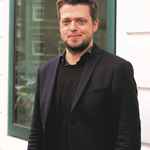Study programme
You need to obtain 30 credits in each of the four semesters of the degree, totalling 120 credits. Your foundational year, semesters one and two, is based at the University of Aarhus and the Danish School of Media and Journalism. During the second year, semesters three and four, you choose one of four specialisation programmes:
- Politics & Communication (University of Amsterdam)
- Totalitarianism & Transition (Charles University Prague)
- Crisis & Conflict (City St George’s, University of London)
- Cultures & Contexts (Ludwig-Maximilians-University of Munich)
-
Politics & Communication specialisation at the University of Amsterdam
If you choose the Politics & Communication specialisation, your second year will be at the University of Amsterdam. This specialisation focuses on the relationship between political actors, media and citizens in a changing media environment. In this research-oriented programme, you learn to reflect on your own role as a journalist in society, the conditions of journalistic production and the impact of media on audiences and political decision-making. The specialisation in Politics & Communication consists of 3 substantial courses, an elective and a thesis module.
-
Critical and scientific understanding of the journalism profession
The programme is primarily concerned with journalism. However, the emphasis is not on practical journalism training, but rather on the critical understanding of the journalism profession, based on scientific research. Ultimately, this contributes to maintaining high journalistic standards and will be of use if you intend to work as a professional journalist in the future, but also if you choose to work in other professions which are related to journalism, media, and communication more broadly.
-
Extracurricular activities
Throughout the specialisation year in Amsterdam you can take part in numerous field trips, guest lectures and activities. In past years, for example, students visited the European Commission, NGO’s, Clingendael Institute and the International Criminal Court, among others.
-
Communicating EuropePeriod 16
This course examines how European integration is perceived by both citizens and political elites, exploring public attitudes toward the EU in the context of current geopolitical and societal challenges. It addresses the rise of Euroscepticism, the role of populist movements, and the impact of key events such as the war in Ukraine. A special focus is placed on political campaigning in European elections and referendums, including the role of emotions and citizen engagement. The course also considers external perspectives on the EU from non-European actors and the role of the news media in shaping public opinion and political participation.
-
Journalism and the MediaPeriod 1Period 212
This course focuses on the interplay between journalism and politics in modern democratic societies and the production of political communication. It addresses different models and conceptions of political journalism, the role of journalism in society, ethical considerations, issues of freedom of speech, and the question of what represents “good” political journalism today. The course also explores (non-) government communication, e.g.: how politicians, NGOs, and social movements interact with the media and citizens.
-
Thesis Preparation GroupsPeriod 1Period 2—
This an introduction to the conduct of the individual Master's thesis in the second semester. You meet several times in groups of 20 to 25 students, under the supervision of a researcher from your track. During this course, you draw up an Initial Thesis Proposal that you will continue to work on during the course ‘Methods and Statistics Tailored to Thesis'.
-
Data JournalismPeriod 26
This course explores the growing role of data in journalism, from analysing large datasets to uncovering stories to enhancing transparency in news reporting. It examines how journalists use computational techniques to work with government data, leaks, and online sources. Alongside discussions on the challenges and opportunities of data-driven reporting, you will gain hands-on experience with Python for retrieving, analysing, and visualising data. The course also covers techniques for cleaning messy data and finding compelling narratives within large datasets, equipping you with essential skills for modern journalism.
-
ElectivesPeriod 1Period 46
You choose from a range of thematic courses that cover different topics within the field of communication science. These include, for example, investigative journalism, solutions journalism, political marketing, social media and politics, media strategies, media entertainment, corporate communication, public relations and brands and organisations in social media.
-
Methods and Statistics Tailored to ThesisPeriod 36
This course builds on the “Thesis Preparation Group” by deepening your methodological knowledge for your Master’s thesis. It covers research design, data collection, and analysis, with a focus on developing both quantitative and qualitative research instruments. Through lectures, group work, and in-class working sessions, you refine your thesis ideas and tailor research methods to your projects. Assignments are closely linked to individual research topics, ensuring a practical and customised learning experience.
-
Journalistic ProductPeriod 4Period 5Period 66
In this course, you'll create a journalistic product related to your thesis research, using principles of science journalism. You'll learn to clearly present your research to a wider audience through various media, such as print, video, or data visualisations. Throughout the semester, you'll develop and produce a journalistic piece that communicates your thesis findings in an engaging and accessible way, integrating contemporary journalism techniques to tell a compelling story.
-
Thesis Journalism, Media and GlobalisationPeriod 4Period 5Period 618
In your thesis, you'll conduct independent research in communication science, developing skills in problem formulation, research design, data collection, and analysis. You'll create a thesis under the guidance of a supervisor, with an emphasis on clear, systematic reporting of your findings. The course Journalistic Product is linked to your thesis.
Academic staff of Journalism, Media and Globalisation

It is fun to teach active and engaged students with such diverse backgrounds and experiences.Dr. Andreas Schuck about this programme, read more